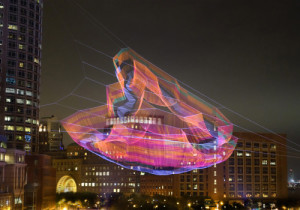By
 …And, for Gawd’s sake, don’t expect me to post any photos on Instagram.
…And, for Gawd’s sake, don’t expect me to post any photos on Instagram.
Yeah, yeah, I know. I should get with the zeitgeist. But for whatever reason, I just can’t. At least in terms of social media.
It’s not that I’m a Luddite. I love technology. I love the Internet. I love being able to take my cup of morning coffee to the computer, sit down, and read any newspaper in the world that has a website. (I lived in Scotland for four years while in graduate school, so anything going on in the U.K. is interesting to me personally beyond the regular attention I pay to world affairs.) I love being able to go to the Mayo Clinic or Massachusetts General Hospital online for medical advice. I love IMDB for movie reviews, goofy as some of them are. I love the website that told me that one of my ancestors, whose name I never knew before the site posted it, was injured at the Battle of Gettysburg, mustered out the following September, and then re-enlisted in the Union Army the following December, presumably having recovered from his wounds. (Either he was a true Union man, or he thought being shot at by the boys in gray was better than facing another Vermont winter. But no matter.) I love email. I’ve participated in some lively political, literary, and cultural online forums. There are many more things I love about the process of instant worldwide communications. It’s made my life so much richer.
But I just can’t get into social media. All writers are supposed to have Facebook pages, or sites, or whatever you call them. Publishers insist on it. In fact, I have one. It’s there for the sole purpose of advertising my books. I don’t think it sells many books. When I glance at it, which may be once every six months, if Facebook is lucky, the “news feed”—whatever the hell that is—is filled with messages from total strangers posting photos of baby animals, places they’ve been to, birthday parties they threw for their two-year-old kids, some fabulous bargain they got at T.J. Maxx, a review of some restaurant I’ll never go to because the cuisine sounds appalling, and painfully (as opposed to painstakingly) detailed instructions on how they trained their kitty-cats to use the litterbox. I don’t know these people. They don’t know me, but they insist on sharing the intimate details of their lives with me. I live in dread that the next time—maybe sometime in 2018—that I check my FB page, I’ll be treated to a graphic description of someone’s menopause, supplemented with captioned photos of clots. Or a home video of a prostatectomy.
I have been assured that there is a way to control who sees your Facebook page, and who posts there, and who doesn’t. But the point is, as an author with a product to sell, I’m supposed to keep the page open to all comers. Perhaps there’s a way to limit the comers to people who want to talk about books. But if there is, at this stage in my life, I’m too bored and busy to find out what it is.
I have a Twitter account. I have posted exactly one message on it, which instructs people to visit my website (www.susankellywriter.com). As far as I know, I have no followers. I also have a LinkedIn account. When I started it, I got bombarded immediately by people advertising their self-published self-help books. There would be—and I am not kidding—at least 40 messages apiece from the same three or four people, none of whom, of course, were known to me. The same message. Over and over and over again. I resented the fact that they were using my account to advertise their products. That put me off looking at my LinkedIn account for at least a year or two.
As with Facebook, there’s probably a way to control LinkedIn and Twitter. But again, as with Facebook, I’m too bored by the whole prospect to do whatever work is involved to find it. And, mind you, this is coming from someone who has been asked by others to fix their computers when there was some sort of glitch, who’s test-driven academic software, and who has the kind of psychotic patience required to read through an 800-page trial transcript and take notes on it.
I used to blog on my website. But I got bored with that, too, because it seemed as if I was talking to myself, although I knew I wasn’t. And I am still very happy to respond to any questions or comments people post there. I ignore, of course, obvious raving lunatics; those who promise to tell me who the real Boston Strangler was if I meet them in a dark alley at midnight; and any person who asks me for a date that involves the deployment of squirt-can whipped cream and chainsaws.
Here’s the final irony about my Facebook site: People I actually know, personally, who’ve looked for it say they can’t find it.
So if you want to read me, follow me, like me–I’m here at Zach’s website, which seems to me more like a small magazine for a select readership, one to which I’m pleased to contribute.
And remember: No canned whipped cream, no chainsaws.






